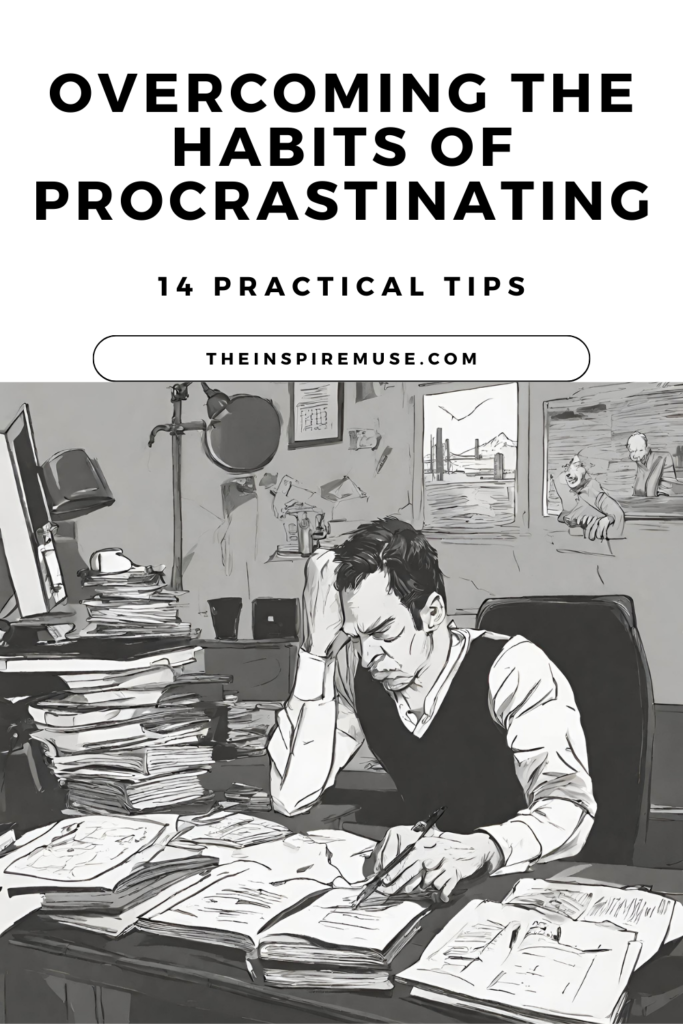Instead of finally working through the stack of papers on your desk, are you googling “procrastination”? Then you are probably one of those people who like to put off important things and do them at the very last minute. With these tips, you can effectively combat procrastination and complete to-dos.
Procrastination: A widespread phenomenon?
Doesn’t everyone procrastinate from time to time? The term comes from the Latin “procrastinare”, which means “to postpone”, “to postpone until tomorrow”. It means that alternative activities postpone upcoming professional or private obligations. Procrastinators, for example, prefer to clean their apartment before sitting down to do the unpleasant tax return. Most people are familiar with this behavior, but it only becomes problematic if you suffer the consequences of procrastination.
There is a procrastination clinic at the Westphalian Wilhelms University in Münster: Students and professionals with serious problems with self-control can find help there. These patients repeatedly and unnecessarily put off important activities. They suffer from psychological and physical problems, and in the worst case, they have negative professional and private consequences.
Because the field of research is still young, the diagnosis is not yet officially recognized. However, the experts at the procrastination clinic estimate that around ten percent of the population is affected by the disorder. A study by the University Medical Center Mainz with around 2,500 test subjects from different age groups shows that these are mainly young people who are still going to school or studying, and more men than women. Around 20 percent of the population, i.e. one in five, are affected by constant procrastination in everyday life without serious health consequences.
Why do we tend to procrastinate?
But why do so many people put off unpleasant activities, even though they probably know that doing so increases stress and pressure, and possibly also anxiety and exhaustion? The following reasons could be behind this:
- Substitute actions often have immediate positive consequences: cleaning the apartment, for example, is done quickly and the result makes you happy. The negative consequences of procrastinating, however, only appear in the long term.
- If the work to be done is not very structured or the task is not clear, this can lead to procrastination. Likewise, tasks without deadlines or those that are particularly unpleasant to complete.
- Performance requirements are often associated with fear of failure.
- The demands on one’s performance are set too high or the goals are unrealistic.
The good news is that procrastination is a learned behavior. This means that it can be unlearned again. Use the following tips to develop a new routine.
What you can do against procrastination: 15 effective tips
#01. Prioritize
Write yourself a to-do list and sort all the items according to priorities:
- Which of the tasks are high priority, which are medium, and which are low priority?
- Record the different stages, for example by marking them with A, B, and C, and then work through them in that order.
- Visibly cross out a completed activity on your list. This reinforces the feeling of having achieved something.
#02. Plan tasks specifically
Write down the “when”, “where” and “how” of an upcoming task:
- When do I want to start?
- Where do I work?
- How much time do I spend on this?
- What goal do I have?
Depending on the scope of the task, also write down: What are the necessary steps to achieve this goal? What information do I possibly need to complete the task? Where do I get these specifically?
#03. Track your working time
Do you have difficulty estimating how long a task will take you? Pick an unpleasant activity that you’ve been putting off for a while and watch yourself do it. Write down how long you have been working on it. How much time do you spend with wandering thoughts or distractions? And how long do you actually work effectively? The more specific you are about your work behavior, the easier it is to change it.
#04. Avoid disruptions
Have you figured out what and who distracts you while you work? Many problems can be ruled out in advance. Are you getting hungry, your smartphone is vibrating, or it is family or colleagues preventing you from completing a task?
Then cook some food and put your cell phone on silent in a closed drawer for working hours. For example, you can tell your colleagues or family that you will not be available for the next two hours. If you get distracted, it usually takes up to 30 minutes to pick up the thread again.
#05. Divide big tasks into small tasks
Is an upcoming task particularly demanding and will require a lot of effort? Always break large projects down into small individual steps to take the horror out of them. Once you have taken the first step, you have already overcome the biggest hurdle.
#06. Apply 50% rule
It’s human nature to overestimate yourself. Expect everything you set out to do to take you about twice as long as you initially think. Have you already written down what you specifically want to work on today? Squeeze out half of it before you start. This will ensure that instead of frustration, you will experience a sense of achievement.
#07. Use the “working time reduction method”
It sounds paradoxical, but it leads to the desired goal: set a realistic time window you must not exceed before starting work. You increase the value of working time by making it more scarce: those who have little time are more effective during this time. Only if you then spend the hours doing effective work is it permitted to extend the period.
#08. Question your procrastination
Consciously think about the reasons behind your procrastination. Why has procrastination become a habit? What is so unpleasant about doing certain tasks? Does it cause stress? Can you approach these activities in a way that doesn’t cause stress or negative feelings? Break habits and approach tasks differently next time.
#09. Use the ritual technique
Set a specific time when you want to start an item on your to-do list. Set an alarm 15 minutes before you plan to start work. Now prepare for work with a ritual: collect any necessary documents, tidy up your desk, ventilate again, etc. The more often you carry out this ritual, the easier it will be for you to start work in the future.
#10. Start to the minute
When the time comes when you plan to start, start immediately. Every minute that passes makes it less likely that you will get the courage to complete the task. According to the 72-hour rule, if we don’t start a project within three days, the chance of starting a project even drops to one percent.
#11. Align with your personal performance phases
The performance phases vary widely from person to person. Are you a lark who can easily get up early and concentrate best in the morning? Above all, use this time to tick off difficult, unpleasant things that have been put off. If, on the other hand, you are one of the owls, you can concentrate particularly well in the evenings and at night. Respect this rhythm – your work will be much easier.
#12. Separate working and leisure time
Reserve a set relaxation time in the evening that you can look forward to. Working is no longer permitted after a certain time. But also set breaks throughout the day. You can then enjoy your free time without a guilty conscience.
#13. Reward yourself
Probably no one will praise you when you check off an item on your to-do list. Therefore, think about a small reward before you start working, which you can then actually redeem after completing the task. For example, buy yourself a book that you have been wanting to read for a long time or treat yourself to a relaxing bath. Your motivation will increase with the rewards.
#14. Share your plans with your family and friends
Anyone who tells other people what goals they have set for themselves has the following effect: They develop the expectation that you will actually complete the task. In this way, you create external pressure that becomes an incentive for you.


